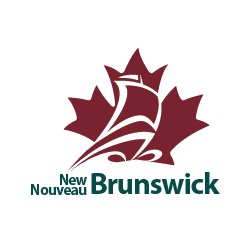
Future Wabanaki
At a glance
- No Condition
- Open Date : September 12, 2023
- All industries
- New Brunswick
- All legal structures
- All revenue ranges
- All organization sizes
- Indigenous Peoples
Overview
Get financial support to help grow your organization by connecting with students looking for meaningful and valuable work experiences.
Activities funded
Future Wabanaki provides Indigenous university students with experiential learning opportunities to connect their academic studies with practical experience and gain valuable skills. These initiatives focus on various modalities to ensure students can engage in meaningful work experiences.
- Work-Integrated Learning: Participation in internships, co-ops, and practicums with mentorship and possibly financial remuneration.
- Community Service Learning: Engagement in volunteer work within community-based organizations.
- Project-Based Learning: Students work on solutions for business or community problems, culminating in a presentation.
- Simulation/Case-Based Learning: Use of simulated contexts for skills acquisition and problem-solving.
- Applied Research: Conducting research under faculty guidance in academic, community, or industry settings.
- Community-Based Research: Collaborative research involving community members in all phases of the process.
- Field Experiences: Application of theoretical knowledge in authentic settings.
- Co-curricular Development: Unique experiential learning activities like competitions and showcases regulated by institutions.
Eligibility
Eligibility for this grant requires companies to meet specific criteria related to their operations and commitment to Indigenous student placements.
- Companies must be operating in New Brunswick.
- Companies must be willing and open to champion cultural sensitivity in the workplace.
- Companies must demonstrate investment towards the Indigenous student's placement.
- Companies must provide adequate supervision, training, and mentoring.
- Companies must participate in surveys, focus groups, and consultations, as required.
Who is eligible?
Future Wabanaki is a grant and initiative aimed at Indigenous university students and New Brunswick employers. Indigenous students looking to gain personal and professional development through experiential learning opportunities are eligible to apply. Similarly, employers based in New Brunswick who are committed to providing experiential learning opportunities to Indigenous students and are willing to facilitate cultural sensitivity within their workplace can apply. In summary, the eligibility primarily targets: 1) Indigenous students registered as full or part-time students; and 2) New Brunswick employers committed to integrating Indigenous students into their workplace.
Eligible expenses
This grant facilitates experiential learning opportunities aimed at bridging academic education with practical work experiences for Indigenous university students. Eligible activities promote professional development through a variety of immersive and hands-on learning experiences.
- Work-Integrated Learning: Internship placements with a mentor, potentially including financial remuneration or earning academic credit.
- Co-op: Curriculum-based work terms that alternate with study terms, featuring paid employment under supervision and mentorship.
- Practicum/Clinical: Practice-based work experience supervised by a professional, either standalone or as part of a coursework component.
- Community Service Learning: Volunteer experience within community-based organizations where students contribute to the organization and community.
- Project-Based Learning: Engages students in solving business or community-identified problems, culminating in a project or presentation.
- Simulation/Case-Based Learning: Use of cases or problems to simulate situations for enhancing problem-solving skills.
- Applied Research: Research conducted by students under faculty guidance in academic, community, or industry settings.
- Community-Based Research: Active involvement of community members in all phases of the research process by students.
- Field Experiences: Application of theoretical knowledge in authentic settings.
- Co-curricular Development: Includes competitions, showcases, events, and other forms of experiential education unique to each institution.
Eligible geographic areas
Companies applying for this grant must be operating in New Brunswick. This focus ensures that Indigenous university students can connect directly with local employers.
- Companies located in New Brunswick.
Selection criteria
There are evaluation and selection criteria for this grant. Eligibility criteria for students include being a registered full or part-time student of Indigenous Ancestry. Employers must be operating in New Brunswick, demonstrate investment towards the Indigenous student's placement, and provide adequate supervision, training, and mentoring.
- Students must be a registered full or part-time student
- Students must be of Indigenous Ancestry
- Students must participate in meetings and focus groups and complete reflective holistic evaluations, as required
- Employers must be operating in New Brunswick
- Employers must be willing to champion cultural sensitivity in the workplace
- Employers must demonstrate investment towards the Indigenous student's placement
- Employers must provide adequate supervision, training, and mentoring
- Participants must engage in surveys, focus groups, and consultations as required
How to apply
Contact University Coordinator
- Identify the appropriate contact based on your affiliated university: UNB, MTA, UMoncton, or St. Thomas University.
- Reach out to the Indigenous Experiential Education Coordinator or Indigenous Affairs Coordinator via email or phone.
Gather Necessary Information
- For students, prepare information on your academic status and Indigenous ancestry documentation.
- For employers, ensure the organization meets criteria such as operating in New Brunswick and commitment to cultural sensitivity.
Participate in Discussions
- Engage in meetings and focus groups as required to discuss potential placements and roles.
- Complete any reflective holistic evaluations as part of the application process.
Application Submission
- Submit any required forms and documentation as instructed by the university coordinator.
- Ensure all necessary details and documents are included to demonstrate eligibility and project viability.
Additional information
Here are additional relevant details for this grant initiative:
- Future Wabanaki emphasizes the integration of cultural sensitivity within the workplace for employers engaging in the program.
- There is an expectation for participants, both students and employers, to engage actively in the program through meetings, focus groups, and consultations.
- The program encourages a holistic approach to evaluations, focusing not just on professional success, but personal and cultural development.
Contacts
Frequently Asked Questions about the Future Wabanaki Program
What is the Future Wabanaki?
How much funding can be received?
What expenses are eligible under Future Wabanaki?
What is the deadline to apply?
Is the Future Wabanaki a grant, loan, or tax credit?
Who are the financial supporters of the Future Wabanaki?
Who is eligible for the Future Wabanaki program?
Who can I contact for more information about the Future Wabanaki?
Where is the Future Wabanaki available?
Are Indigenous Peoples eligible for the Future Wabanaki program?
More programs like this
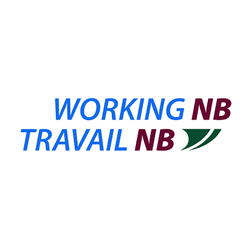
Working NB Employers
Government of New Brunswick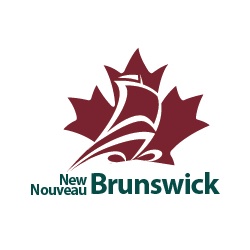
Agri-Industry Development & Advancement — Business Development (Agricultural Organizations and Associations)
Government of New Brunswick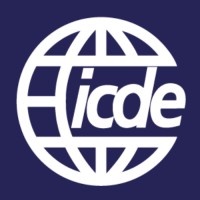
JEDI — Aboriginal Development Fund — Business and Entrepreneurship Development
Joint Economic Development Initiative (JEDI)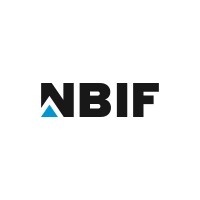
NBIF — Research Assistantships Initiative (RAI)
New Brunswick Innovation Foundation (NBIF)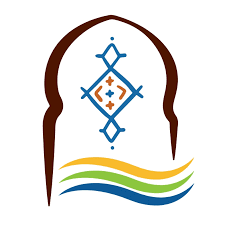
Community Investment Fund
Government of New Brunswick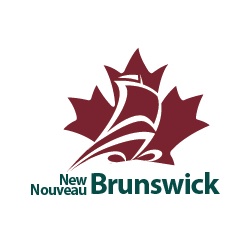
Self-Employment Benefit — Workforce Expansion
Government of New Brunswick
Peak Rebate Program
NB Power
NBIF Venture Capital Fund
New Brunswick Innovation Foundation (NBIF)
Business Planning, Skills Development and Agriculture Education
Government of New Brunswick